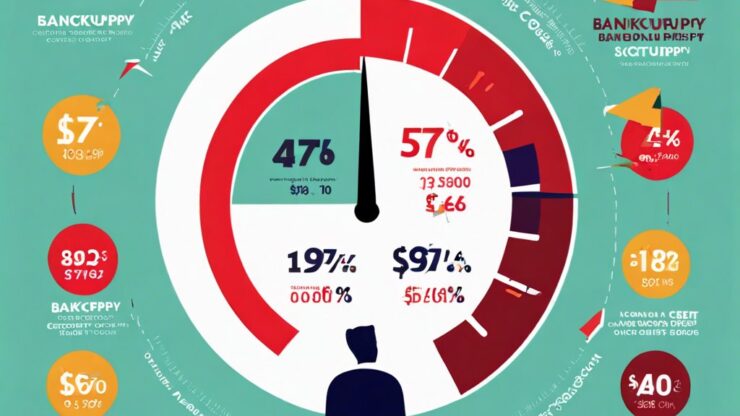The Weight of Bankruptcy on Your Credit Score
When individuals or businesses face overwhelming debt, bankruptcy may seem like the only viable option. However, the repercussions of filing for bankruptcy extend beyond immediate financial relief, significantly affecting your credit score. Understanding this impact is crucial for anyone considering bankruptcy as a solution to their financial troubles.
Bankruptcy filings can remain on your credit report for up to 10 years, depending on the type of bankruptcy you file. This long-lasting mark can hinder your ability to secure loans, credit cards, and even housing in the future. Let’s explore how bankruptcy influences your credit score and what you can do to mitigate its effects.
Immediate Consequences of Bankruptcy on Credit Score
The moment you file for bankruptcy, your credit score takes an immediate hit. This decline is often steep, depending on your prior credit standing. If you were already struggling with late payments or high debt, the filing can exacerbate an already poor rating.
Here’s a breakdown of how bankruptcy can influence your credit score:
- Chapter 7 Bankruptcy: This type of bankruptcy is often referred to as liquidation bankruptcy and typically remains on your credit report for 10 years. It can lower your score by as much as 200-300 points.
- Chapter 13 Bankruptcy: This is a reorganization bankruptcy that may stay on your credit report for 7 years and might result in a slightly less severe impact on your score, often ranging between 150-250 points.
Steps to Rebuild Your Credit After Bankruptcy
While the effects of bankruptcy on your credit score can be severe, it is important to remember that recovery is possible. Here are some effective strategies to help you rebuild your credit after bankruptcy:
- Start by Monitoring Your Credit Report: Regularly check your credit report to understand your current standing and ensure all information is accurate.
- Open a Secured Credit Card: This can help you establish new credit lines while minimizing risk.
- Make Timely Payments: Consistently paying bills on time can gradually improve your credit score.
- Limit New Credit Applications: Too many inquiries can further damage your score, so be selective in applying for new credit.
In conclusion, while bankruptcy can significantly impact your credit score, understanding the implications and taking proactive steps can pave the way for a successful financial recovery.
Disclaimer
This article has been created or edited with the support of artificial intelligence and is for informational purposes only. The information provided should not be considered investment advice. Please seek the support of a professional advisor before making any investment decisions.






